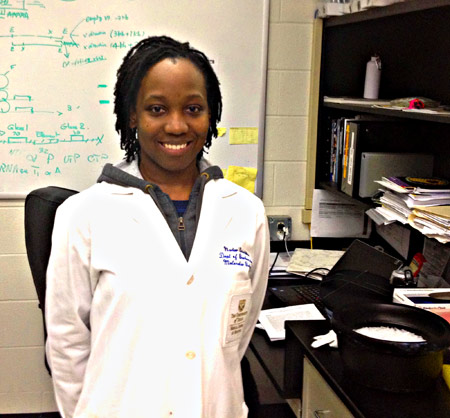Posted by Gregory J Block MSc PhD on Jan 7, 2015

Friends of FSH Research and FSHD Canada are excited to announce that Dr. Eric Wagner and a graduate student in his lab, Natoya Peart, have been awarded a two-year grant in the form of a graduate student fellowship.
Dr. Wagner’s lab is relatively new to the FSHD field. The lab specializes in a very particular aspect of molecular biology called “three prime end formation”. Don’t worry, it’s pretty easy to understand (after 9 years of graduate training).
Our field is pretty confident that we need to identify strategies for preventing the activation of DUX4 in the muscle of people with FSHD. Dr. Wagner has an innovative approach to reduce DUX4 levels.
The gene encoding DUX4 is written in DNA. In order to make the protein, a verbatim copy of the DNA must be delivered to the protein-making factory. That copy is called RNA. But in order for the RNA not to get immediately destroyed, it needs to be properly packaged so it can get to its final destination. We know that the packaging of RNA is an intricate process, and Dr. Wagner has identified a strategy that interferes with that process, specifically for the DUX4 RNA. If you mess up the DUX4 RNA, you can’t make and DUX4 protein!
If this strategy works, Dr. Wagner and soon-to-be Dr. Peart, will identify a “lead compound” that will need to be advanced towards pre-clinical and clinical trials. Good thing we’ve been investing in those as well! Everything is ready to go.
Congratulations to the Wagner lab!





Connect with us on social media